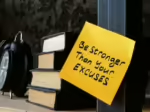
When a person is struggling with a substance use disorder, the idea of seeking help can be overwhelming and intimidating. As a result, it’s not uncommon for individuals to come up with various excuses to avoid getting help. Understanding these common excuses is crucial for loved ones, friends and professionals seeking to support someone on their journey to addiction recovery effectively. In this blog, we’ll explore the most frequent excuses used by those trying to avoid recovery and discuss strategies to address and overcome them.
Excuse: “I Don’t Have a Problem”
One of the most common excuses in recovery is denial. The individual may genuinely believe—or convince themselves—that they don’t have a substance use problem. This denial is often rooted in a deep fear of change or an inability to imagine life without their substance of choice.
How to Address It:
Approach the person with compassion and present concrete examples of how their behavior has negatively impacted their life and the lives of others. Use specific instances where their substance use has led to harmful consequences, such as missed work, damaged relationships, or health issues. This helps make the problem more tangible and harder to deny.
Excuse: “I Can Quit Anytime I Want”
Another frequent excuse is the belief that the individual has complete control over their substance use and can quit whenever they choose. This excuse often stems from a lack of understanding about addiction as a chronic disease that alters brain function and behavior.
How to Address It:
Educate the person about the nature of addiction. Explain that addiction is not merely a bad habit but a complex disease that requires professional treatment. Encourage them to try taking a break from their substance use to see how difficult it might be, which can help them recognize that quitting may not be as easy as they think.
Excuse: “I Don’t Need Help, I Can Do It On My Own”
Some individuals may acknowledge their substance use problem but insist that they don’t need external help to overcome it. They may believe that seeking help is a sign of weakness or that they should be able to handle the situation independently.
How to Address It:
Reframe seeking help as a sign of strength and courage rather than weakness. Share stories of others who have successfully gone through addiction recovery with the help of professionals, support groups or loved ones. Emphasize that recovery is a journey that often requires guidance, and accepting help is a vital part of the process.
Excuse: “I’m Too Busy to Get Help”
Life’s responsibilities, such as work, family or school, are often used as excuses to avoid seeking treatment. The individual may argue that they don’t have the time to commit to addiction recovery, fearing that it will disrupt their daily life.
How to Address It:
Discuss how untreated addiction can ultimately cause more disruption to their life than taking time for recovery. Explain that many treatment options, such as outpatient programs or flexible scheduling, are designed to accommodate busy lives. Help them see that prioritizing their health can prevent more significant issues.
Excuse: “Treatment is Too Expensive”
Financial concerns are a common barrier to seeking help. The individual may believe they can’t afford treatment, especially if they are unaware of the various available options and resources.
How to Address It:
Research and provide information about the different types of treatment available, including low-cost or free options. Many communities offer sliding-scale fees, government-funded programs, or financial assistance. Additionally, some insurance plans cover addiction treatment. Helping the individual understand that cost should not be a barrier can alleviate this concern.
Excuse: “I’ve Tried Before and It Didn’t Work”
Past failed attempts at sobriety can lead to the belief that recovery is impossible. The individual may feel discouraged and use previous failures as an excuse to avoid trying again.
How to Address It:
Acknowledge their past experiences and validate their feelings of frustration, and encourage them to see each attempt as a step closer to recovery. Remind them that addiction recovery is often a process of trial and error and that finding the right treatment approach can take time. Emphasize that perseverance is critical and that many people succeed after multiple attempts.
Understanding the common excuses in recovery is a critical step in helping someone overcome their resistance to seeking help for a substance use disorder. Whether it’s denial, fear of failure or concerns about time and money, these excuses often mask deeper fears and anxieties about the recovery process. By addressing these concerns with empathy, education and practical solutions, you can help your loved one take the first crucial steps toward addiction recovery. Remember, the goal is to offer support and encouragement, making it easier for them to see that recovery is possible and worth pursuing.
